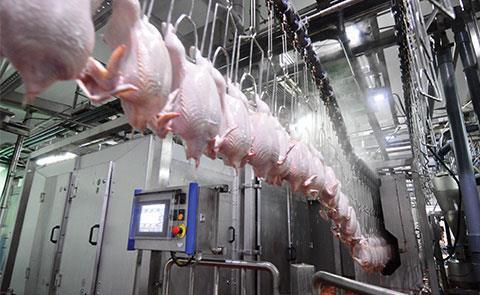The government’s Agri-Tech Catalyst scheme is to award a share of £16 million funding to a total of 24 agri-tech projects, including a focus on a whole supply chain approach to campylobacter.

Moy Park Ltd, Devenish (NI) Ltd, Primer Design Ltd, the University of Lincoln, the University of Liverpool, Slate Hall Veterinary Practice and St David’s Poultry Team have received funding to conduct the largest known molecular study to track and trace campylobacter through the supply chain.
It will deploy whole genome sequencing on a huge scale to optimise a series of on farm and factory interventions, which reduce the contamination of whole chickens with campylobacter. These interventions include novel animal feeds and factory processes.
Funding will also be used to develop a new qPCR testing kit for campylobacter, which will be deployed and validated on farm and in factories. The kit will be developed to segregate live from dead cells and will provide the industry with a real time and accurate rapid enumeration technique.
Funding for projects focusing on carcass trait phenotype feedback for genomic selection in sheep and early detection of tail biting in pigs using 3D video to measure tail posture has also been awarded.
One of these projects, led by Innovent Technology Ltd, Scotland’s Rural College (SRUC), Agri EPI Ltd and J Sainsbury Ltd, will develop a ‘smart farming’ product based on the latest video technology and machine-vision software to automatically detect changes to a pig’s behaviour, which is associated with the period before a tail biting outbreak in pigs. It is hoped this will allow farmers to intervene and prevent tail biting, which can result in pain and sickness for bitten pigs and economic losses for farmers.
Farming minister, George Eustice, said: “Taking innovation from the laboratory to the farm is key to boosting the productivity and tackling pests and diseases. That is why the government supports projects through our Agri-Tech Strategy.”
This story was originally published on a previous version of the Meat Management website and so there may be some missing images and formatting issues.















